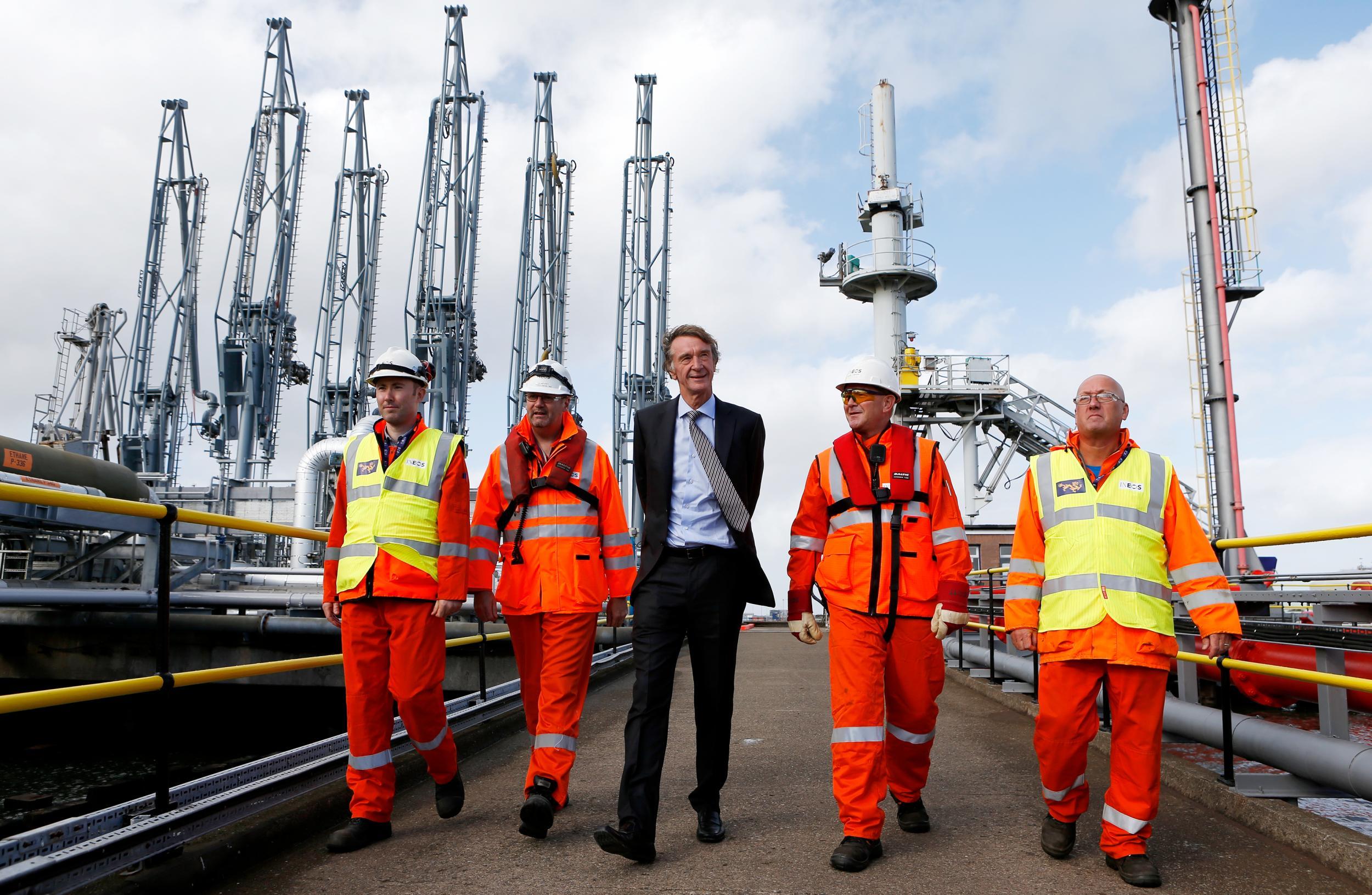Hard Brexit deal could leave UK vulnerable to gas crisis, MPs warn
‘It is critical that the Government takes basic steps to stabilise investment in the energy sector’

Your support helps us to tell the story
From reproductive rights to climate change to Big Tech, The Independent is on the ground when the story is developing. Whether it's investigating the financials of Elon Musk's pro-Trump PAC or producing our latest documentary, 'The A Word', which shines a light on the American women fighting for reproductive rights, we know how important it is to parse out the facts from the messaging.
At such a critical moment in US history, we need reporters on the ground. Your donation allows us to keep sending journalists to speak to both sides of the story.
The Independent is trusted by Americans across the entire political spectrum. And unlike many other quality news outlets, we choose not to lock Americans out of our reporting and analysis with paywalls. We believe quality journalism should be available to everyone, paid for by those who can afford it.
Your support makes all the difference.A hard Brexit deal with the European Union could leave the UK vulnerable to a gas crisis, MPs have warned.
In a report, the Commons’ Energy and Climate Change Committee said Britain was “heavily reliant on Europe” for imports of gas and electricity.
The EU is expected to agree a “solidarity principle” between member states, which essentially means they would help one another in event of a shortage of supply or major price increases.
The MPs warned that if the UK was excluded from this pact the Government “must urgently investigate alternative back-up arrangements”.
The main energy industry body said it expected the issue to be “front and centre” of the Brexit talks. About 80 per cent of British homes are currently heated using natural gas.
A hard Brexit deal – in which most ties to the EU are cut – is looking increasingly likely after Theresa May appointed prominent Leave campaigners to the group of Cabinet ministers who will control the negotiations.
In their report, the MPs said there was concern among energy industry stakeholders that: “The UK’s departure from the EU could end its involvement with coordinated actions and processes, thereby undermining the security of fossil fuel supplies.
“It could also result in the UK’s exclusion from the EU’s proposed ‘solidarity principle’, a policy designed to ensure that member states receive immediate assistance in the event of a gas supply crisis,” they added.
Uncertainty over this “important backstop arrangement” could potentially put off investors and “delay the development of indigenous fossil fuel resources such as shale gas”, which is produced using the controversial fracking technique.
“The UK is heavily dependent on Europe for its electricity and gas imports,” the report said.
“Pan-European coordination has helped to improve the UK’s security of supply.
“If excluded from the ‘solidarity principle’, the UK Government must urgently investigate alternative back-up arrangements to ensure security of supply in the event of a crisis.”
The two main energy industry bodies stressed the importance of providing stability for investors.
Lawrence Slade, chief executive of Energy UK, said: “Secure sources of power and gas are vital to the success of the British economy.
“We would expect issues such as this to be front and centre of any negotiations [about Brexit].
“Moves to ensure the UK has access to supplies from a range of different resources, from shipped liquefied natural gas to piped natural gas from Norway, is certainly a step in the right direction.
“Domestic production of green gas and other low-carbon alternatives should also be promoted as part of a long-term gas security framework.”
Dr Nina Skorupska, chief executive of the Renewable Energy Association, pointed out that the UK’s membership of the solidarity principle was one of a number of questions that remained to be answered.
“The report highlights Brexit-related ‘known unknowns’ facing the UK including uncertainty around the EU Emissions Trading System, the Internal Energy Market, and access to major financial institutions such as the European Investment Bank,” she said.
“Given these uncertainties, it is critical that the Government takes basic steps to stabilise investment in the energy sector.”
The Department for Business, Energy and Industry Strategy, said in a statement: "The Government has plans in place to ensure we always have enough energy supplies whilst keeping bills down and delivering value for money."
Join our commenting forum
Join thought-provoking conversations, follow other Independent readers and see their replies
Comments